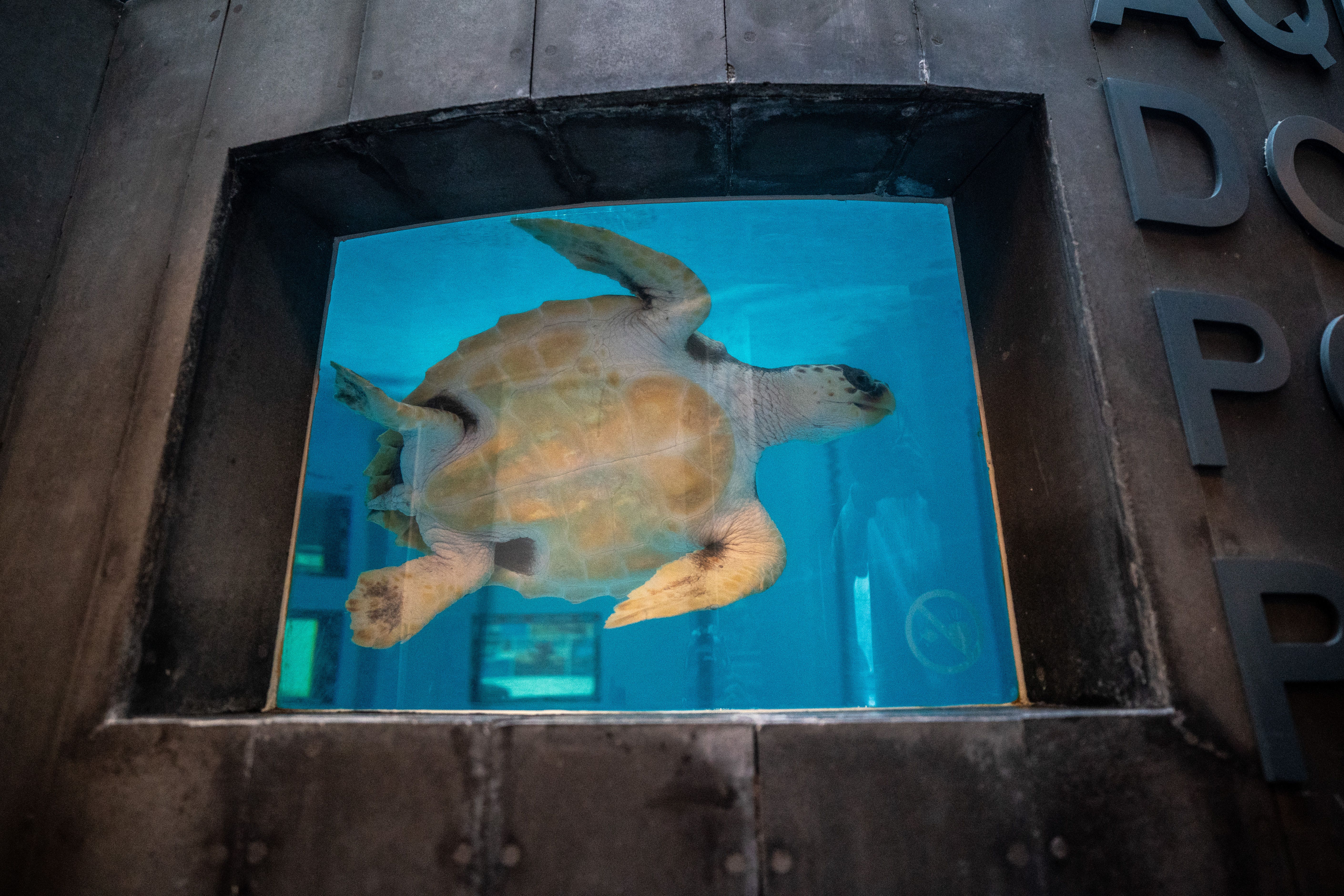Turtle returned to wild almost two years after being found on Scottish beach
Iona, a loggerhead turtle, became the smallest live-stranded turtle recorded in the UK when she was found off Iona.

Your support helps us to tell the story
From reproductive rights to climate change to Big Tech, The Independent is on the ground when the story is developing. Whether it's investigating the financials of Elon Musk's pro-Trump PAC or producing our latest documentary, 'The A Word', which shines a light on the American women fighting for reproductive rights, we know how important it is to parse out the facts from the messaging.
At such a critical moment in US history, we need reporters on the ground. Your donation allows us to keep sending journalists to speak to both sides of the story.
The Independent is trusted by Americans across the entire political spectrum. And unlike many other quality news outlets, we choose not to lock Americans out of our reporting and analysis with paywalls. We believe quality journalism should be available to everyone, paid for by those who can afford it.
Your support makes all the difference.A “malnourished and dehydrated” turtle that washed up on a beach in Scotland last year more than a thousand miles from her natural habitat has been restored to good health and released back into the wild.
Iona was not expected to “make the night” after she was found in 10C water off the Scottish island of Iona – after which she was named – in January 2022.
The animal was found cold-stunned and dehydrated and became the smallest live stranded loggerhead turtle recorded in the UK.
She was spotted by a passer-by before the team at the British Divers Marine Life Rescue contacted Sea Life in Loch Lomond to bring her in for rehabilitation.
Iona was relocated to Sea Life in Scarborough in May last year for further care before making her long journey from Scarborough to the Azores in Portugal this month – a voyage of nearly 1,700 miles.
Todd German, animal care curator at Sea Life Scarborough, said she was “lucky” to have been discovered.
He told the PA news agency: “She was found by a passer-by in the bleak midwinter, which is just incredibly lucky that she was found.
“She was really touch and go whether or not she would pull through and make it.”
Mr German said that her release back into the wild was “surreal” but hopes Sea Life can continue giving turtles a “chance of survival”.
He said: “It’s quite surreal because she’s been with us for a long time.
“It was really strange in the fact that that was the end of my part in her journey and it was a really lovely feeling to see her go off into the big blue.
“Sea turtles around the world are really facing challenges, and I dread to say, they’re human-faced challenges. That’s through climate change and also our interaction with the natural environment and turtles themselves.
“We, as Sea Life, as aquariums, want to play our part in contributing back to the wild and hopefully giving the sea species and turtles the chance of survival for millions of years to come.”
Robin Hunter, display supervisor at Sea Life Loch Lomond and part of Iona’s care team, said it was his first time rehabilitating a turtle.
He told PA: “It was obviously not the best experience that you’d want for the turtle, but to be part of something like that is pretty spectacular. You really feel like you’re making a difference.
“To be able to see her now go and live the way she’s supposed to be living, that is a phenomenal feeling.
“There’s a small percentage of worry because you never know. It’s the wild at the end of the day, but she is a fighter.”
Mr Hunter said that Iona was not in good condition when she was first discovered but said her recovery has been “remarkable”.
He said: “When she first arrived, she wasn’t in great condition and she was very dehydrated, very malnourished…. we really didn’t expect her to make the night.
“Bit by bit, with a lot of work from the care team, we were able to slowly raise her temperature.
“It was remarkable. It was like a totally different turtle.”
Mr Hunter said it was “a very slow process” restoring Iona to a healthy weight. She gradually increased to 21kg which is 10 times the weight when she was found.
The loggerhead turtle was fitted with a satellite tag to allow researchers to monitor her behaviour in the wild.
Andrea Herguedes, a research assistant at the Institute for Research in Marine Sciences and Costa project told PA: “We are wondering if she will behave the same as a wild turtle after one year of rehab.”
There is a chance the loggerhead turtle could migrate as far as North America because “when loggerheads reach sexual maturity they move to nesting beaches”, Mafalda Sousa, another research assistant added.
Ms Herguedes said she is confident that Iona will thrive again in the wild, describing her species as “super resilient”.
Sea Life partnered with Flying Sharks at the Porto Pim aquarium in Portugal, a company promoting sustainable use of the ocean, enabling Iona to relocate to warmer climates.